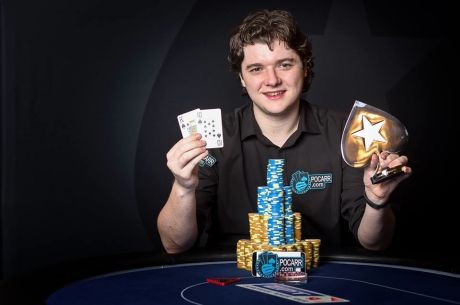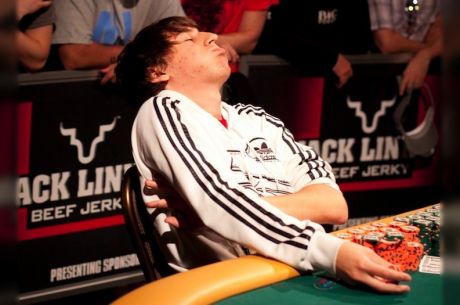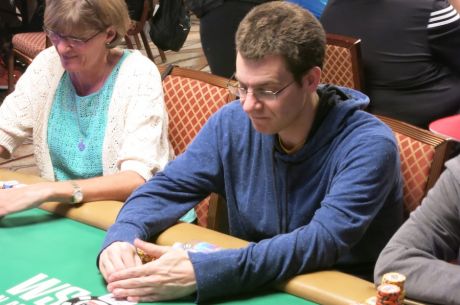Five Challenges to Poker Productivity (and How to Overcome Them)

How many times have you promised yourself that you would diligently work to take your game to a higher level only to realize in the days and weeks after said promise you��ve made no virtually headway?
Perhaps you��d like to put in more volume, but for some reason you just haven��t been able to. Or maybe you��ve set other goals for yourself, but haven��t found a way actually to sit down and work toward achieving them.
It is possible, although challenging, to become a more productive and successful poker player �� if you have the right strategies in place. Consider the following challenges to poker productivity, and read on for suggestions for overcoming each of them.
1. Failure to eliminate distractions
It is hard to focus on hand history reviews when our phones are buzzing and we are getting social media alerts every few seconds. The lure of electronic media is strong. In order to have laser-like focus, it is mandatory that you cut out as many distractions as you can and electronic ones are often the easiest to eliminate.
In a recent interview on The Mindset Advantage Podcast, Patrick ��pads1161�� Leonard revealed that he has removed all social media applications from his computer in order to maintain his focus while he is playing. Think about whether or not doing something similar might be a good idea for you, too.
2. Delaying a task because of self-doubt
It is human nature to avoid tasks we are not sure we are capable of accomplishing. If you fear seeing your mistakes, you will tend to avoid doing your reviews. Likewise, it can be difficult to meet volume goals when you are in the midst of a downswing.
Overcoming self-doubt is no easy task, but it can be done if you get some encouragement either from yourself or from a friend or coach. Get going in the right direction and build up some small successes in order to increase confidence, and don��t be afraid to ask for help.
3. Not knowing when you are most efficient
As a poker player, you probably have a great deal of control over your schedule. Ideally, you should make use of your most high-energy times to complete your highest priority tasks.
If you are a morning person, schedule study sessions and playing time during the a.m. hours. If you are a night owl, tackle them later in the day. Managing your energy can go a long way to improving your bottom line.
4. Being inconsistent
The most important thing you can do to improve your game is to take consistent action. Short study sessions engaged in daily will have more effect than longer ones carried out only every now and then.
Consistency is the key. If you have volume goals, figure out how many hours per day you need to put in and then schedule them in a way so that you are playing consistently. Playing in fits and starts is generally not ideal.
5. Failure to prioritize
There is only so much time in the day and you have to decide which tasks are most important to you. If you tackle high priority items each day, it��s hard not to make progress. Also, get your high priority items done more efficiently.
One of my clients was spending several hours a week commuting to the gym because exercise was a high priority for him that he was not willing to give up. But the commute was cutting into his playing time and reducing his overall ROI. When we looked at how much money he was losing during those commuting hours, he decided a better use of his time was to have the trainer come to him. On the surface, it might seem extravagant to have a trainer come to your home, but he calculated that he was losing $3,000 per month during his commute time!
Take a look at your own priorities and try to delegate low priority items or find another work-around.
Conclusion
As you can see, reducing procrastination and improving motivation is the result of changing your mindset as well as your environment. You can set yourself up so that your success becomes almost a foregone conclusion, or you can operate in a manner which makes it likely that you will continue to struggle. The choice is yours.
Photo: ��Money Bends Time,�� Pictures of Money. Creative Commons Attribution 2.0 Generic.
Dr. Tricia Cardner is the author of Positive Poker with Jonathan Little, available in paperback, audio, and e-book formats via D&B Poker as well as through the PokerNews Book Section. She also co-hosts The Mindset Advantage Podcast with Elliot Roe, available for free on iTunes. For more from Dr. Cardner, visit her website and follow her on Twitter @DrTriciaCardner.
Want to stay atop all the latest in the poker world? If so, make sure to get PokerNews updates on your social media outlets. Follow us on Twitter and find us on both Facebook and Google+!









